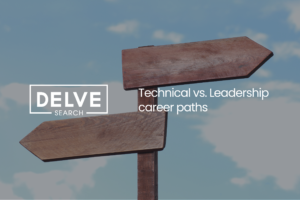Working From Home and Flexible Working

Flexible working and working from home is a real hot topic at the moment. It seems like with millennials and Gen Z entering the workplace, and with an array of images of employees using a Macbook by the sea on social media sites such as Instagram, there is a real drive and desire for flexible working.
Companies often wrestle with this, especially those who are more mature in their processes and those who want visible presence from their employees. I get why this is this case, but, as a recruitment consultant, I often find brilliant candidates who don’t or can’t meet the location requirements of the role. It really got me thinking about what employers should consider before they allow or reject flexible working requests. Here are some of my ideas:
1 – Do I trust my employees enough to allow it? Ultimately, it boils down to trust. Sure, the odd person will always be the exception to the rule, but trusting your employees to complete their tasks within times and locations to suit them is where this often falls down. So as a business leader, ask yourself, do you trust your team?
2 – Do employees need to be present, visible or both? Recently, I spoke to a candidate who rejected a role with a lower salary but greater responsibility purely because it required “visibility”. He explained that he was able to work all sorts of hours to meet the needs of the role, but ultimately his family life was important and the obligation to be in the office 8.00 – 18.30 every day made accepting this role impossible. It wasn’t due to the money, it was a decision which was purely based on this required “visibility”. The business wanted him to be present (i.e. available for calls and meetings), but also visible (i.e. they wanted to see him in the office doing his job).
3 – Will it suit my business? Ultimately, flexible working won’t suit every single business. As an employer it’s critical to consider if allowing flexible working will impact on your customer service and above anything else, on your bottom line. If it will, maybe it’s not the route for you.
4 – Will I be comfortable with the perceived lack of control? As mentioned above, it is all about control. Will you, as a leader, be comfortable with your employees working from home whilst not being able to physically see the contributions they are making each day.
5 – How will I measure success? If you go for it, and decide to implement a flexible working or work from home policy, it is worth considering how you will measure success. Will it be day-to-day wins, weekly productivity reports, or monthly project completions for example? Each role may be different, but to really be in tune with how well your work from home strategy is doing, it is worth being on top of what success looks like.
You could literally write pages and pages of considerations before implementing or removing a flexible working policy. It is really worth sitting back to consider the positive impact this could have on your company as well. Yes, there is a risk, but in equal measure there is reward. Could this type of policy reduce childcare costs, save commuting time and money, allow people to be back home before 7pm, and ultimately, could it result in immeasurable benefits that boost your staff retention in return?
If you would like to discuss how to implement something like this, or discuss examples of businesses who have implemented or removed flexible working policies, then I would be glad to discuss: Gareth.foden@delverec.com
Share This Recent Articles

Technical vs. Leadership career paths

The hidden engine of Germany’s innovation: Why the future of engineering relies on a proactive approach

Networking Tips for Semiconductor Professionals in Europe

Key workforce challenges in the Advanced Engineering sector

Breaking into the Semiconductor Industry: Tips for engineering graduates







